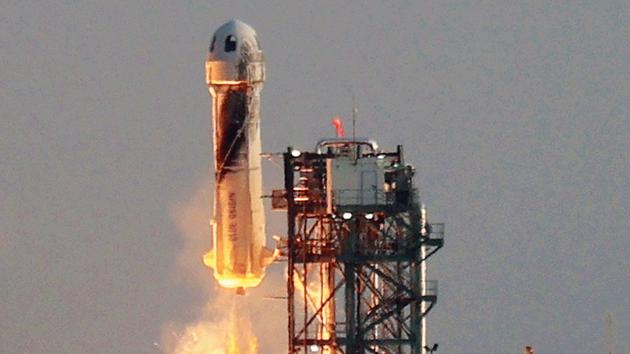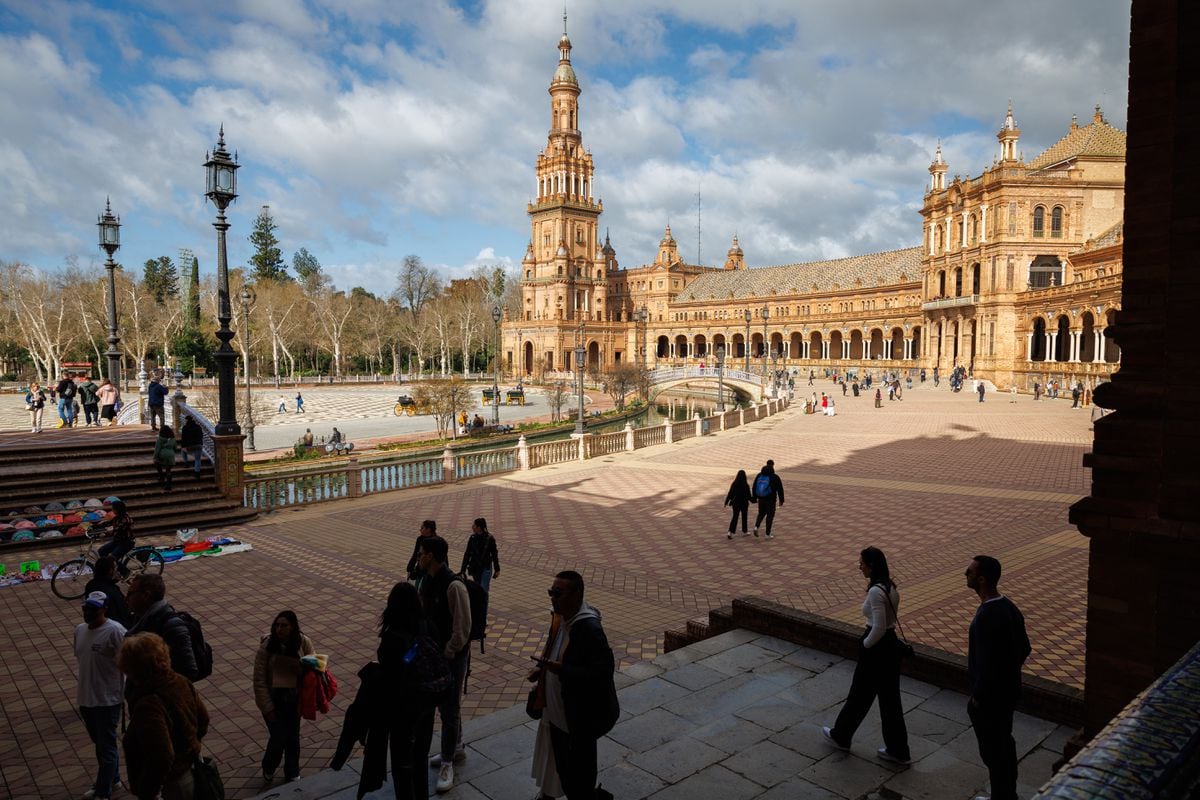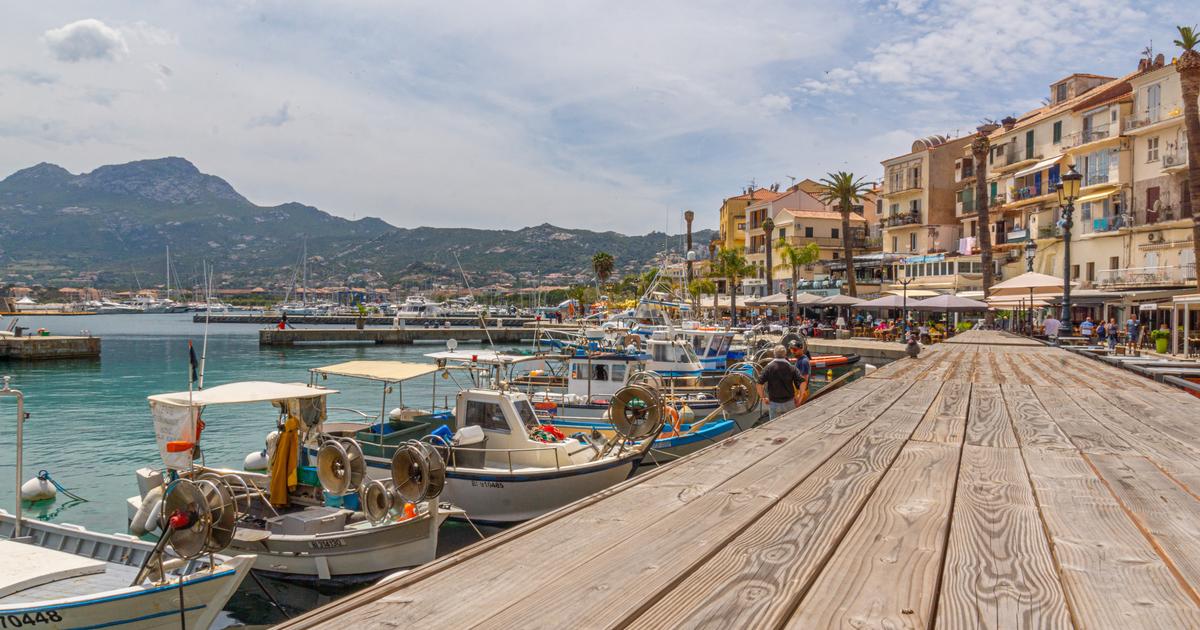The year 2021 could go down in history as the year which saw the start of the (quite relative) democratization of tourism in space.
After the first operational flight of the Virgin Galactic space plane on July 11, it was the Blue Origin capsule that took its first passengers into space on Tuesday.
Read also:
Blue Origin tries its first manned flight
In total, in less than ten days, eight civilians discovered the joys of weightlessness and saw with their eyes the curvature of the Earth standing out against the darkness of the cosmos.
This is as much as all previous space tourists hosted, for $ 20 to 30 million, aboard the International Space Station between 2001 and 2009.
Eight civilians discovered the joys of weightlessness and saw with their eyes the curvature of the Earth standing out against the darkness of the cosmos.
BLUE ORIGIN / via REUTERS
100 km altitude
Obviously, the experience offered by the two companies is more limited.
Billionaire Richard Branson and the three Virgin Galactic employees who were able to take advantage of the maiden flight were only ninety seconds in weightlessness.
Tuesday is just over double the time Jeff Bezos, his brother and the other two passengers spent floating in space.
Enough, however, to make them astronauts.
Wally Funk, 82, invited by Blue Origin, has become the oldest of this still very closed club.
Olivier Daemen, 18, is the youngest and the first to have paid for his seat for a suborbital flight (we do not know the price).
Read also:
Richard Branson makes his first space flight with Virgin Galactic
The technology offered by Blue Origin is more traditional than the rocket plane on board the Virgin Galactic carrier ship. The passengers take their seats in a capsule positioned on top of a small 15-meter rocket, New Shepard. Except for the reduced size of the launcher, it resembles in principle the Russian Soyuz vessels or the old American Apollo capsules (but also the current SpaceX Crew Dragon or the Boeing Starliner).
Three minutes after launch, the capsule detaches from the launcher, which returns to the ground.
If SpaceX has made us familiar with this feat in recent years, it remains a remarkable performance!
As the launcher falls, the capsule finishes its ascent to reach an altitude of just over 100 km before descending to earth under three gigantic parachutes.
"It's the happiest day of my life,"
said Jeff Bezos shortly after the capsule touched down in the Texas desert from where it had taken off ten minutes earlier.
Jeff Bezos, his brother and the other two passengers spent 11 minutes floating in space.
BLUE ORIGIN / via REUTERS
What future for the two companies? Blue Origin plans to make two more flights this year. The next one could take place in late September or early October, but no details about the participants have filtered out. We do not know the price charged but if the bidding for this inaugural flight had risen to 28 million dollars, the price of the ticket should be lower. A threshold of $ 1.4 million had been set for the auction and 5,200 potential buyers participated! As far as Virgin Galactic is concerned, two qualifying flights are still scheduled this year. Then the company plans to make some design changes in order to be able to increase the rate of flight. Some 600 people are said to have spent $ 250,000 to be put on the waiting list. In both cases,we still only seem to be in the early stages of this new sector.
To read also:
Jeff Bezos-Elon Musk: a space duel still unbalanced
Five days in orbit
Until then, it may still be SpaceX that could be a game-changer.
The company is planning a first commercial flight aboard its Crew Dragon capsule.
This time, four seats at $ 55 million each will be on sale.
At this price, however, the experience offered is far more spectacular: passengers would then have to spend five days in orbit around the Earth, up to 800 km altitude, or twice that of the International Space Station!
Departure scheduled for late 2021 or early 2022.









